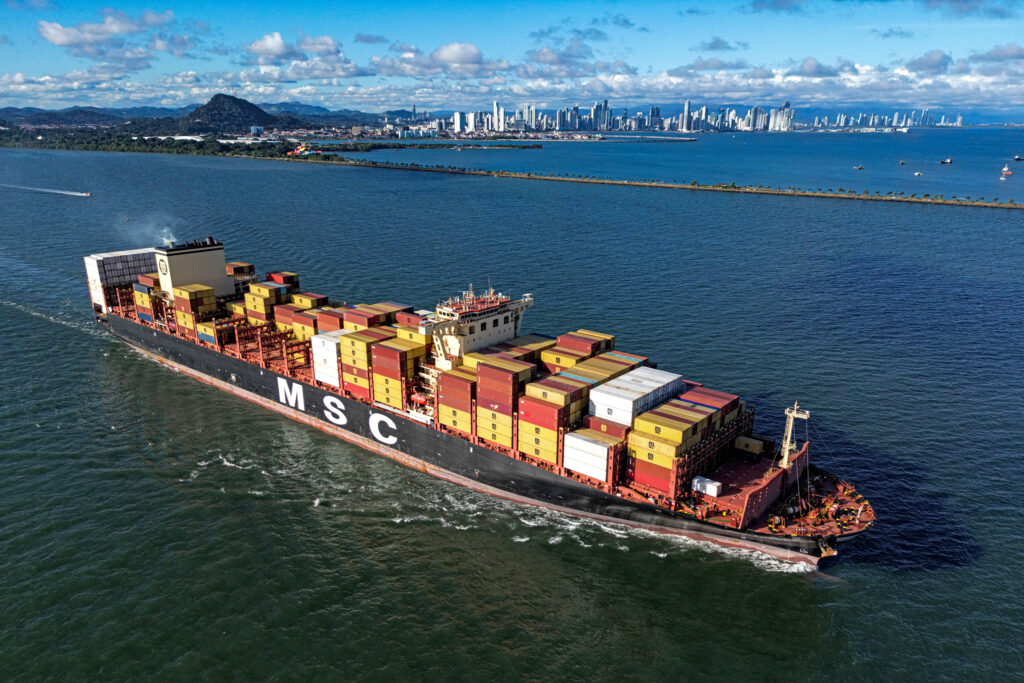Remote island nations like Tuvalu rely heavily on shipping services for access to international markets, food, and healthcare. However, this dependency has environmental costs that Tuvalu wants shipowners to help address.
The global shipping industry facilitates 90 percent of world trade and is responsible for nearly 3 percent of global greenhouse gas emissions. These emissions contribute to climate change, resulting in sea level rise that threatens the existence of small island nations.
NASA reports that sea levels in Tuvalu, a South Pacific island group with a total land area of just 10 square miles, are rising 1.5 times faster than the global average. By the century’s end, levels could increase by another 20 to 40 inches.
“Predictions indicate that within 50 to 100 years, low-lying islands like Tuvalu could be fully submerged,” stated Simon Kofe, Tuvalu’s minister for transport, energy, communication, and innovation.
To combat this threat, Kofe and representatives from the 6PAC+ Alliance—a coalition of six Pacific island states and Caribbean nations—are urging the International Maritime Organization (IMO) to establish a mandatory carbon levy of $150 per ton on emissions from large commercial vessels of at least 5,000 gross tons.
This levy targets both freight and passenger ships, excluding domestic fleets. The organization will vote on the proposal by next year. If adopted, it would be the first universal carbon pricing for the shipping industry.
Earlier this month, nearly 200 IMO member states met in London to discuss plans to decarbonize the shipping industry, outlined in its 2023 Revised Greenhouse Gas Strategy. The plan includes reducing emissions by 30 percent by 2030 and 80 percent by 2040, with net-zero emissions by 2050.
States discussed not only the proposed levy but also ways to enhance fleet efficiency through wind and solar energy and adopting a global fuel standard.
Most marine vessels use highly polluting heavy fuel oil. “Shipping is cost-effective but burns very filthy fuel, contributing to our climate crisis,” said Delaine McCullough, president of the Clean Shipping Coalition.
There is debate on which alternative fuels to use as the IMO transitions away from fossil fuels. While some biofuels are cheap, they can impact food security and biodiversity. The promising alternatives are e-fuels, produced through electrolysis using renewable energy.
Decarbonizing fleets will be costly. UNCTAD estimates it could require $90 billion annually to establish supply chains for carbon-neutral fuels, with fuel prices potentially doubling. An additional $8 billion to $28 billion per year may be needed to equip ships with efficient technologies and train seafarers.
Consumers may bear the cost, especially in small island nations and developing countries that depend on imports. “The freight cost will rise, affecting shelf prices,” said Major Lloyd Jones, chairman of the Belize Port Authority, supporting the carbon levy.
The levy aims to reduce emissions and generate revenue to help vulnerable countries like Tuvalu and Belize transition to green technologies and adapt to climate change.
“Success with a universal levy in shipping could lead to similar levies in other sectors,” said Jones, emphasizing its potential broader impact.
Original Story at insideclimatenews.org
